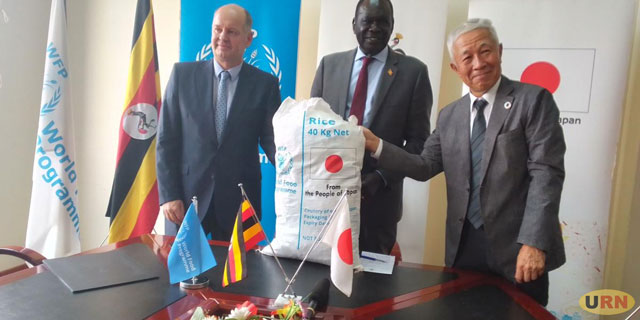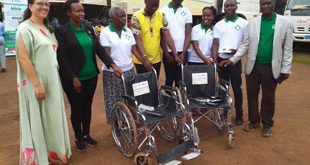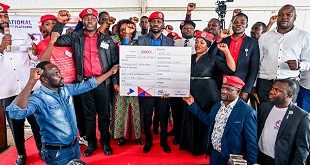
Kampala, Uganda | THE INDEPENDENT | The Minister for Relief, Disaster Preparedness, and Refugees, Hillary Onek has called on the international community to increase funding for Uganda to enable it to feed the growing population of refugees.
Engineer Onek appealed while receiving 2000 metric tons of rice worth 8.5 billion Uganda Shillings donated by Japan to feed refugees.
Onek revealed that currently refugees are feeding on one meal a day, and some have started involving in unacceptable activities like stealing from people’s gardens to survive.
He added that the issue of refugees is not Uganda’s problem, it is an international problem where the world has to help Uganda feed the refugees.
The minister applauded the government of Japan for its consistent support of Uganda’s refugees. He added that Japan has been improving on the funding to Uganda to support the growing numbers of refugees.
Fukazawa Hidemoto, the Japanese ambassador to Uganda noted that the food prices have continued to rise due to Russian aggression against Ukraine. He said the war has worsened the food and energy situation in the world.
The ambassador pledged that his country will continue to support the medium and long-term approaches to assistance to mitigate food and nutrition insecurity situation in the refugee settlements.
Marcus Prior the Deputy Country Director of the World Food Program in Uganda said that Japan’s contribution will help the World Food Program to provide meals to 50, 000 new arriving refugees from South Sudan, the Democratic Republic of Congo (DRC) Somalia, and Sudan.
He added that after consultations with refugees and key stakeholders, the World Food Program is now prioritizing the most vulnerable refugees for food assistance.
He also noted that refugees that are categorized as vulnerable receive 60 percent of the size of regular food rations and the less vulnerable have been weaned off the assistance and connected to the long-term livelihood assistance. The new arrivals receive a 100 percent of food ration for the first 3 months.
The World Food Program has bought over 75000 tons of maize and over 35000 tons of beans and they spend 5 million dollars every month to give to refugees WFP noted the current support it is still not sufficient given the growing numbers of refugees of over 1.6 million refugees.
****
URN
 The Independent Uganda: You get the Truth we Pay the Price
The Independent Uganda: You get the Truth we Pay the Price


